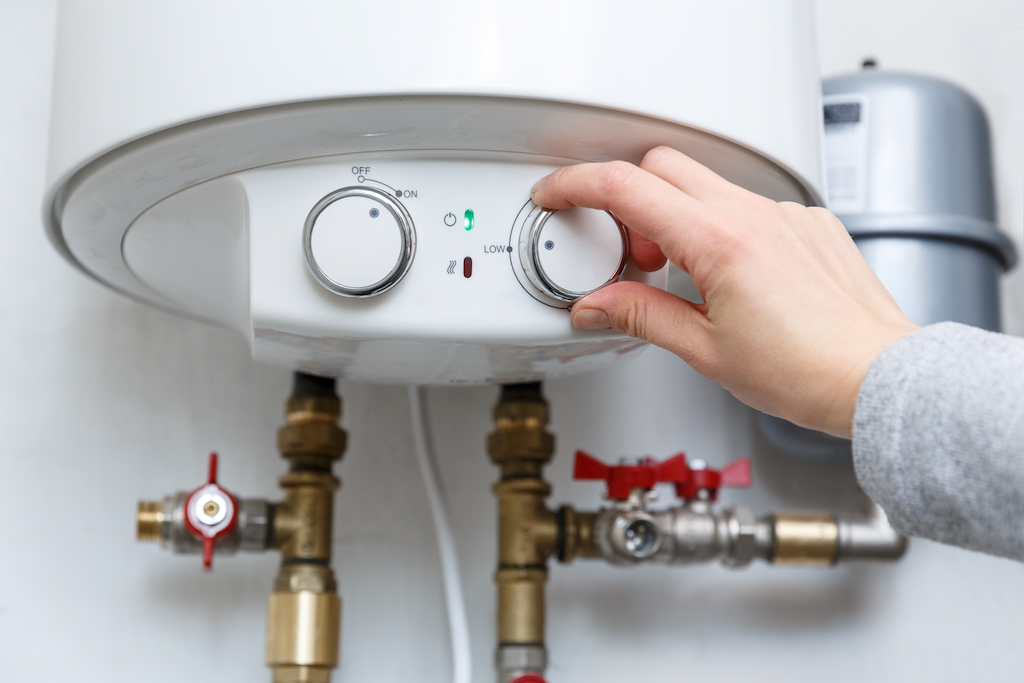
The Ultimate Guide to Water Heater Installation: A Must-Read for Homeowners
You’ve been thinking about it for a while now, haven’t you?
That old water heater is on its last legs, and you know it’s time for a change. You’re wondering about water heater installation, what it entails, and how it can benefit your home. Well, you’re in the right place!
In this article, we’ll explore everything you need to know about water heater installation.
From the detailed explanation of the process to the top tips and strategies from experts, we’ve got you covered.
Whether you’re a DIY enthusiast or looking to hire a professional, this guide is for you.
What is Water Heater Installation?
Water heater installation is more than just a simple task of replacing an old unit with a new one.
It’s a comprehensive process that requires careful planning, understanding, and execution. Water heater installation involves several key steps, each of which plays a crucial role in ensuring that your home has a consistent and efficient supply of hot water.
First and foremost, installing a water heater begins with selecting the right type of water heater for your home.
This choice depends on various factors such as the size of your family, your hot water consumption patterns, energy efficiency preferences, and budget. Whether you opt for a traditional tank-based system or a modern tankless water heater, making the right choice is vital for long-term satisfaction.
Next, the area where the water heater will be installed must be prepared.
This includes ensuring that there’s enough space for the unit, proper ventilation is available, and all necessary connections (such as gas, electric, and water lines) are accessible. Proper preparation minimizes the risk of issues later on and ensures that the water heater installation process goes smoothly.
The actual installation of the water heater involves connecting the unit to the existing plumbing system, setting up the necessary electrical or gas connections, and configuring any additional components such as thermostats or venting systems.
This part of the installing a water heater process can be complex and requires specialized tools and knowledge. It’s often best to hire a professional plumbing service to handle this part of the job to ensure that everything is done correctly and safely.
Once the water heater is installed, it must be thoroughly tested to ensure that it’s working correctly. This includes checking for leaks, making sure that the temperature settings are correct, and verifying that all safety features are functioning as they should.
Water heater installation is a multifaceted process that involves careful planning, selection, preparation, installation, and testing.
Whether you’re replacing an old unit or setting up a new one, understanding what water heater installation entails can help you make informed decisions and ensure that you get the most out of your investment.
If you’re considering installing a water heater for your home, don’t hesitate to seek professional guidance to ensure that the job is done right.
Here’s everything else you need to know about installing a water heater , including tips from experts, FAQs, and how Bluefrog Plumbing + Drain North Dallas can help you with your water heater needs.
Understanding the Basics
Water heater installation is not just about connecting some pipes and turning on the switch.
It’s a complex process that requires careful planning, the right tools, and expertise. Here’s a step-by-step guide to help you understand what’s involved:
Choosing the Right Heater
The first step in installing a water heater is selecting the right model for your home. Whether it’s a tankless water heater or a traditional one, this choice is crucial.
Consider factors like energy efficiency, size, and your household’s hot water needs. Researching different brands and models can help you make an informed decision.
Remember, the right water heater will serve you for years to come, so take the time to choose wisely.
Preparing the Area
Before the water heater installation process begins, you must clear the space where the new heater will be installed.
Ensure proper ventilation and accessibility for maintenance. Check for any obstructions that might hinder the installation process. If necessary, make structural adjustments to accommodate the new unit.
Proper preparation ensures that the installation goes smoothly and helps avoid potential problems down the line.
Removing the Old Heater
If you’re replacing an existing unit, installing a water heater involves draining and disconnecting the old heater first.
This step must be done with caution, following safety guidelines to avoid accidents. Shut off the power and water supply, drain the tank, and carefully disconnect all connections.
Proper disposal of the old unit is also essential, and local regulations may dictate how this should be done.
Installing the New Heater
Water heater installation continues with connecting the water lines, gas or electric supply, and setting up the venting system.
This step is often best left to a professional plumbing service, as it requires specialized tools and knowledge. Proper alignment, secure connections, and adherence to local building codes are vital at this stage.
A professional plumber will ensure a smooth installation, minimizing the risk of leaks or other issues.
Testing and Finalizing
Once installed, the water heater system must be thoroughly tested for leaks and proper functioning.
This part of the installing a water heater process includes filling the tank (if applicable), turning on the power, and checking all connections. Adjustments may be needed to ensure optimal performance, such as calibrating the thermostat or fine-tuning the venting system.
A final inspection ensures that everything is in order, and your new water heater is ready to provide reliable service.
Installing a water heater is a multifaceted task that requires a clear understanding of the process, from selecting the right heater to testing the final setup.
By following these steps and considering professional assistance, you can ensure a successful water heater installation that meets your home’s needs and complies with all safety and regulatory standards.
Whether you’re upgrading to a more efficient model or installing a water heater for the first time, understanding the basics is key to a successful project.

Photo By 3D_generator at iStock
Tips and Strategies from Top Plumbing Experts
Water heater installation is a task best left to professionals, but if you’re keen on understanding the process or attempting a DIY project, here are some expert tips:
Use Quality Materials
installing a water heater using high-quality pipes, fittings, and other materials is essential.
Investing in top-notch components ensures longevity and reduces the risk of leaks and other issues. Cheap or substandard materials may save you money initially but can lead to costly repairs and replacements down the line.
Consult with a professional plumbing service to get recommendations on the best materials for your specific needs.
Follow Local Building Codes
Different locations may have specific regulations regarding water heater installation.
These codes are in place to ensure safety and proper functionality. Ignoring or violating these regulations can lead to fines, legal issues, and even dangerous situations.
Always consult with local authorities or hire a professional plumbing service to ensure compliance. They will be familiar with the local codes and can guide you through the necessary permits and inspections.
Consider Energy Efficiency
Modern water heaters come with energy-efficient features.
Opting for an Energy Star-rated model can save you money in the long run by reducing your energy bills. Energy efficiency is not only good for your wallet but also for the environment.
When planning your water heater installation, consider factors like insulation, temperature settings, and the overall design of the system to maximize efficiency.
Hire a Licensed Plumber
Installing a water heater is a complex task that requires specialized skills and knowledge.
If you’re not confident in your DIY abilities, hiring a licensed plumber ensures that the installation is done correctly and safely.
A professional will have the necessary tools, experience, and understanding of local codes to complete the job without any hitches. They can also provide valuable insights and recommendations tailored to your specific situation.
Regular Maintenance is Key
Once installed, regular maintenance is crucial to keep your water heater running efficiently.
This includes tasks like flushing the tank, checking for leaks, inspecting the anode rod, and adjusting the thermostat. Regular maintenance helps in detecting potential problems early, preventing costly breakdowns, and extending the lifespan of your system.
Consider setting up a maintenance schedule with a professional plumbing service to ensure that your water heater stays in top condition.
Installing a water heater is a significant investment that requires careful consideration and planning.
By following these expert tips, you can ensure a successful installation that meets your needs and complies with all regulations.
Whether you’re upgrading to a more efficient model or installing a new system for the first time, understanding these strategies can help you make informed decisions and get the most out of your investment.
Remember, when in doubt, consulting with a professional is always the best course of action. They can provide personalized guidance and ensure that your water heater installation is done to the highest standards.
Top 5 Ideas for Water Heater Installation in 2023 and Beyond
1. Energy-Efficient Models
Consider installing an energy-efficient model to reduce your energy bills.
Modern, efficient water heaters are becoming popular, especially in multi-family buildings like apartment complexes. They can save money on utilities and offer residents fast, reliable hot water.
Opting for an Energy Star-rated model can be a wise investment for long-term savings.
2. Advanced Safety Features
Safety is paramount when installing a water heater. New technologies are enhancing safety measures. From earthquake-resistant straps to advanced pressure regulating valves, these safety features ensure that the water heater operates securely.
Innovations like automatic shutoff in case of leaks or overheating add an extra layer of protection, minimizing risks and enhancing peace of mind.
3. Customized Solutions for Different Needs
Water heater installation is no longer a one-size-fits-all solution. Manufacturers are offering customized options tailored to specific needs, preferences, and budgets.
From compact tankless models for small apartments to high-capacity systems for large families, there’s a water heater for every situation.
These tailored solutions ensure that homeowners get the most suitable water heater that aligns with their unique requirements.
4. Eco-Friendly and Sustainable Practices
Sustainability is at the forefront of modern water heater installation. Energy-efficient models, eco-friendly materials, and responsible disposal of old units are becoming standard practices.
Manufacturers are focusing on reducing the carbon footprint of their products, from production to disposal. Homeowners are also increasingly conscious of their environmental impact and are opting for greener solutions when installing a water heater.
5. Integration with Renewable Energy Sources
One of the most exciting developments in water heater installation is the integration with renewable energy sources like solar and geothermal energy.
Solar water heaters use solar panels to capture sunlight and convert it into heat, reducing reliance on traditional energy sources.
Geothermal systems utilize the earth’s natural heat to warm the water. These renewable energy integrations not only reduce energy consumption but also contribute to a greener environment.
6. Proper Sizing
Choose the right size of the water heater based on your family’s needs.
The size of the water heater should align with the hot water consumption patterns of your household. Whether it’s a tankless water heater or a traditional one, selecting the right size ensures that you have enough hot water without wasting energy.
Consult with a professional to determine the best size for your specific needs.
8. Professional Installation
Hiring a licensed plumber ensures that the water heater installation meets all safety and building codes.
From earthquake safety to pressure regulation, there are various codes and regulations that must be followed during installation. A professional plumber will be aware of these codes and can ensure that the installation is done correctly and safely.
This not only ensures compliance but also enhances the efficiency and longevity of the system.
9. Regular Maintenance
Schedule regular maintenance to keep your water heater running efficiently.
Regular maintenance includes tasks like flushing the tank, checking for leaks, inspecting the anode rod, and adjusting the thermostat. It helps in detecting potential problems early, preventing costly breakdowns, and extending the lifespan of the system.
Consider setting up a maintenance schedule with a professional plumbing service to ensure optimal performance.
10. Smart Technology
Modern water heaters come with smart features for convenience and efficiency.
From remote control via smartphones to advanced temperature settings, smart technology adds a layer of convenience when installing a water heater. These features allow you to monitor and control the system remotely, providing insights into usage patterns and enabling energy-saving modes when needed.
Embracing smart technology can enhance your water heating experience and contribute to a more sustainable lifestyle.
To sum up, water heater installation is a significant home improvement project that requires careful consideration and planning.
By focusing on energy efficiency, proper sizing, professional installation, regular maintenance, and smart technology, you can ensure a successful installation that meets your needs and contributes to a comfortable and sustainable living environment.
Whether you’re upgrading an existing system or installing a new one, these top 5 ideas provide valuable insights to guide your water heater installation process.
Also read: How To Know You Need Water Heater Installation
The Importance of Location in Water Heater Installation
When installing a water heater, the location of the unit within your home plays a vital role in its efficiency, safety, and longevity.
The placement of the water heater can impact everything from energy consumption to ease of maintenance.
Here’s an in-depth look at why location matters in water heater installation and how to choose the optimal spot:
Accessibility for Maintenance and Repairs
Water heaters require regular maintenance and occasional repairs.
Choosing a location that provides easy access for inspections, cleaning, and servicing can save time and effort in the long run.
An accessible location also allows for quicker detection of any issues, such as leaks or malfunctions, reducing potential damage.
Compliance with Building Codes
Local building codes often dictate specific requirements for water heater installation, including clearance, ventilation, and safety measures.
The location must comply with these regulations to ensure proper functioning and avoid legal complications. Consulting with a professional plumber or local authorities can provide guidance on the best location that meets all legal requirements.
Energy Efficiency Considerations
The distance between the water heater and the points of use (such as showers, sinks, and appliances) can impact energy efficiency.
A water heater located closer to these areas reduces the time and energy needed to deliver hot water. In contrast, a remote location may result in heat loss as the hot water travels through the pipes, leading to higher energy bills.
Safety Concerns
Safety is paramount when installing a water heater, and the location plays a crucial role in minimizing risks. Adequate ventilation is essential to prevent the buildup of harmful gasses, especially in gas-powered units.
The location should also be free from flammable materials and provide enough space for safety features like pressure relief valves.
Aesthetic and Space Considerations
Water heaters come in various sizes and designs, and the chosen location should align with the aesthetics and space constraints of your home.
A bulky water heater may be an eyesore in a prominent area, while a sleek, modern design might fit well in a more visible location. Balancing aesthetics with functionality is key to finding the perfect spot for water heater installation.
In summary, the location of a water heater is more than just a matter of convenience; it’s a strategic decision that impacts the efficiency, safety, and aesthetics of your home.
From accessibility and compliance with building codes to energy efficiency, safety considerations, and visual appeal, choosing the right location requires careful thought and planning.
Consulting with professionals, understanding your home’s layout, and considering your specific needs and preferences can guide you to the optimal location when installing a water heater.
By giving due importance to the location, you can ensure a successful installation that serves you well for years to come, enhancing comfort and contributing to a well-designed and efficient home.
Bluefrog Plumbing + Drain North Dallas and How It Can Help with Water Heater Installation
When it comes to water heater installation, you want to ensure that the job is done right. That’s where Bluefrog Plumbing + Drain North Dallas comes in.
Serving locations like Denton, TX; Irving, TX; Carrollton, TX; Richardson, TX, our team of experienced plumbers is ready to assist you with all your water heater needs.
Whether it’s a tankless water heater repair or a complete water heater installation, we offer top-notch plumbing service that you can rely on.
Our commitment to professionalism, punctuality, quality work, and transparency sets us apart from the rest. Don’t hesitate to call us at 469-573-2535 for a free consultation and quote.
Conclusion
Water heater installation is a vital aspect of home maintenance and improvement. Whether you’re looking to replace an old unit or install a new one, understanding the process and hiring the right professionals can make all the difference.
Bluefrog Plumbing + Drain North Dallas is here to assist you with all your water heater needs, offering quality service and expertise.

Photo By peterschreiber.media at iStock
FAQs
- How Long Does Water Heater Installation Take?
Installing a water heater typically takes between 2 to 4 hours, depending on the complexity of the job and the type of heater being installed.
- Can I Install a Water Heater Myself?
While it’s possible to install a water heater yourself, it’s recommended to hire a professional plumber to ensure safety and compliance with local codes.
- What is the Cost of Water Heater Installation?
The cost of water heater installation varies based on the type of heater, location, and additional requirements. It can range from $300 to $2,000.
- How Often Should I Replace My Water Heater?
Most water heaters last between 10 to 15 years. Regular maintenance can extend its lifespan.
- Is a Tankless Water Heater Better?
Tankless water heaters are known for their energy efficiency and endless hot water supply, but they may have higher upfront costs.
- How Do I Choose the Right Water Heater?
Consider factors like size, energy efficiency, type (tankless or traditional), and your household’s hot water needs.
- Can I Convert My Electric Water Heater to Gas?
Yes, but it requires professional plumbing service and adherence to local building codes.
- What are the Signs of a Failing Water Heater?
Signs include inconsistent water temperature, leaks, strange noises, and rusty water.
- How Do I Maintain My Water Heater?
Regular inspections, flushing the tank, checking for leaks, and replacing worn-out parts are essential maintenance steps.
- How Can Bluefrog Plumbing + Drain North Dallas Help with Water Heater Installation?
With experienced plumbers and quality service, we can handle all aspects of water heater installation, repair, and maintenance in Denton, Irving, Carrollton, and Richardson, TX.
Have you considered water heater installation for your home?
Share your thoughts and experiences in the comments below!
Check out this tip!
See our previous blog here.
Alan Soukup




















